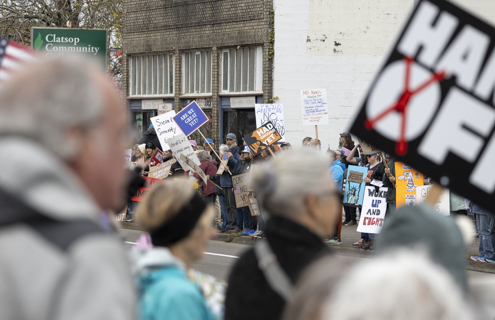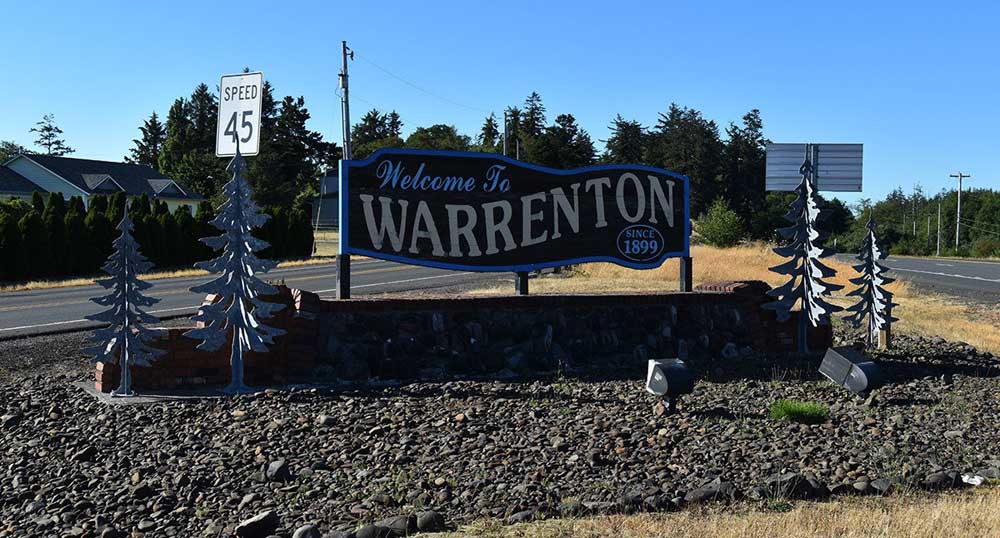EWEB cloaks property packages
Published 5:00 pm Sunday, June 8, 2014
Eugene Water & Electric Board doesn’t want the public to see the information packages that four development groups have submitted explaining why they are qualified to redevelop EWEB’s waterfront property.
The utility on its website has released limited summaries of some of the information the developers submitted last month, but it has denied a Register-Guard request under Oregon public records law to release the entire packages.
Also, EWEB, as part of its request for “qualifications/information” from the developers, known as an RFQ, included a requirement that the developers “will not publicly disclose the content of their proposals” until EWEB lets them.
The proposed redevelopment of the prominent Willamette riverfront site in Eugene is drawing a lot of public interest. A June 4 article about EWEB’s release of the limited summary information about the four groups has been one of the most-read stories on registerguard.com.
EWEB asserts that it can keep the submittals secret under Oregon’s public bidding laws, which allow agencies to keep responses to “requests for proposals,” or RFPs, confidential until one of them is picked. RFPs are competitive, detailed bid proposals for projects.
The newspaper has appealed the records denial to the Lane County District Attorney’s Office, which can issue a ruling upholding or overturning EWEB’s denial. From there, either side can appeal to Lane County Circuit Court.
The newspaper argues that EWEB never solicited RFPs from the developers. Instead, EWEB solicited “requests for qualifications/information,” or RFQ/I, which under Oregon law follow a different and less formal procedure than RFPs. Oregon’s RFQ/I law does not offer the blanket secrecy allowed by Oregon’s RFP law, the newspaper argues.
EWEB issued its RFQ/I in March. The agency said four development groups responded by the May 23 deadline. Under EWEB’s RFQ/I specifications, the developers must explain their “general development approach” to the riverside site, including phasing; what EWEB or city “contributions” the developers expect; and how the development would benefit EWEB ratepayers.
The developers must also submit a “preliminary business analysis,” including a timeline, an explanation of how the developer would identify uses for the property, plus more information on the “economic viability” of the project. They must also show potential funding sources plus private and public funding sources for previous projects. EWEB has put none of that information on its website.
It has, however, issued brief descriptions of the four groups, including their lead members and some of their development experience.
EWEB spokesman Joe Harwood said the agency “tried very hard to balance the public interest in a transparent process with creating a level playing field so that the future multi-million dollar land transaction decision is done with integrity and fairness to all parties.”
EWEB is hoping to either lease or sell the site to one of the groups.
Under EWEB’s RFQ/I process, after EWEB’s evaluation team assesses all the submitted information, it will rank the groups and EWEB will invite one or more of the groups to interview with the EWEB team. All that work would be done out of public view, according to EWEB.
The utility would then let one or more of the groups make a public presentation to EWEB’s board, on July 30, Harwood said.
“Any member of the public and media are welcome to hear the (July 30) presentations, the board discussion, and even provide feedback that will be included as part of the overall selection process,” he said.
“To release the RFQ responses to The Register-Guard now means that EWEB would also have to make these responses available to each of the proposers as well,” Harwood said. That would “dilute” EWEB’s ability to evaluate the responses, he said.
“The requirement that firms not disclose submittals is part of maintaining that integrity and ensuring a fair playing field,” he added.
Under Oregon public records law, regardless of whether developers submitted information in response to an RFP or an RFQ/I, EWEB can still claim some of the information can be kept confidential as, for example, a “trade secret.”
EWEB spokesman Lance Robertson said that once EWEB picks a developer, it may continue to withhold all or part of the submitted materials.
Follow Christian on Twitter @ChristianWihtol . Email christian.wihtol@registerguard.com .





